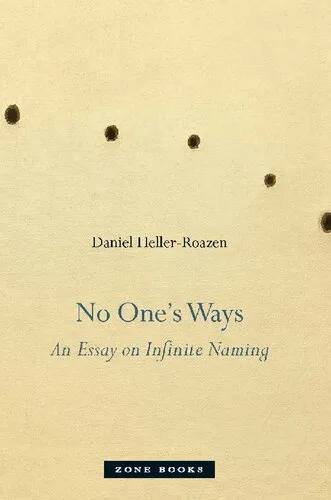No One’s Ways: An Essay on Infinite Naming (Zone Books)
4.8
Reviews from our users

You Can Ask your questions from this book's AI after Login
Each download or ask from book AI costs 2 points. To earn more free points, please visit the Points Guide Page and complete some valuable actions.Related Refrences:
Homer recounts how, trapped inside a monster's cave, with nothing but his wits, Ulysses once saved himself by twisting his name. He called himself Outis: "No One" or "Non-One," "No Man" or "Non-Man." The ploy was a success. He blinded his barbaric host and eluded him, becoming anonymous, for a while, even as he bore a name. Philosophers never forgot the lesson that the ancient hero taught. From Aristotle and his commentators in Greek, Arabic, Latin and more modern languages, from the masters of the medieval schools to Kant and his many successors, thinkers have exploited the possibilities of adding "non-" to the names of man. Aristotle is the first to write of "indefinite" or "infinite" names, his example being "non-man." Kant turns to such terms in his theory of the infinite judgment, illustrated by the sentence, "The soul is non-mortal." Such statements play unexpected and often major roles in the systems of Salomon Maimon, Hegel and Hermann Cohen, before being variously and profoundly reinterpreted in the twentieth century. Reconstructing the adventures of a particle in philosophy, Heller-Roazen's book shows how a grammatical possibility can be an incitement for thought. Yet it also draws a lesson from persistent examples. The philosophers' infinite names all point to one subject: us. "Non-man" or "soul," "Spirit" or "the unconditioned," we are beings who name and name ourselves, bearing witness to the fact that we are, in every sense, unnamable.
Free Direct Download
You Can Download this book after Login
Accessing books through legal platforms and public libraries not only supports the rights of authors and publishers but also contributes to the sustainability of reading culture. Before downloading, please take a moment to consider these options.
Find this book on other platforms:
WorldCat helps you find books in libraries worldwide.
See ratings, reviews, and discussions on Goodreads.
Find and buy rare or used books on AbeBooks.



